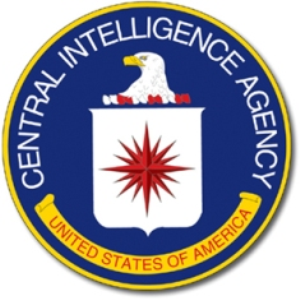By Carrie Johnson and Joby Warrick, Washington Post
The CIA got rid of 92 videotapes depicting the harsh interrogations and confinement of "high value" al-Qaeda suspects, government lawyers disclosed yesterday, as a long-running criminal probe of the tapes' destruction inched toward a conclusion that is not expected to result in charges against CIA operations employees, three sources said.
Then-directorate of operations chief Jose A. Rodriguez Jr. gave an order to destroy the recordings in November 2005, as scrutiny of the CIA and its treatment of terrorism suspects intensified. The agency's then-Director Michael V. Hayden argued that the tapes posed "a serious security risk" because they contained the identities of CIA participants in al-Qaeda interrogations. Until yesterday, the exact number of destroyed tapes was not known. Agency officials have said they stopped taping detainees six years ago.
Federal prosecutor John Durham, who was appointed last year to investigate why the tapes were incinerated and whether any court directives were violated, has nearly completed formal interviews with all the key characters. Durham and FBI agents working alongside him conducted a lengthy session last week with a person who worked closely with Rodriguez at the time of the tapes' destruction, according to sources who have followed the case. Rodriguez has not yet been questioned, they added. Durham appears unlikely to secure criminal indictments against Rodriguez and other agency operations personnel involved in the conduct, the sources said. In recent months, the prosecutor has focused special attention on CIA legal advisers who reviewed court directives and on agency lawyers who told Rodriguez that getting rid of the recordings was sloppy and unwise but that it did not amount to a clear violation of the law, the sources said. Durham has obtained internal e-mail messages and memos that detail the sometimes jarring or unpleasant substance of the interrogations chronicled on the destroyed tapes, they added. At issue are recordings that chronicle the interrogation of two senior al-Qaeda members, Zayn al-Abidin Muhammed Hussein, better known as Abu Zubaida, and Abd al-Rahim al-Nashiri, while they underwent a simulated drowning practice known as waterboarding and in less hostile moments as they interacted with agency employees or sat in their prison cells, according to government officials who spoke on the condition of anonymity because the materials remain classified.
The Washington Post reported in late January that Durham had recently interviewed agency lawyers Robert Eatinger, who one source said was consulted days before the destruction order, and Steven Hermes. Other questions remain, including a request by U.S. District Judge Leonie M. Brinkema for information to prepare for the sentencing of Zacharias Moussaoui around the same time that CIA operations officials made the decision to order that the tapes be destroyed, the sources said. Such cases can be difficult to prosecute because of the need to convince jurors what government actors knew at the time and that their lapses went beyond carelessness and into intentional false statements. There is also a heavy volume of classified information that can be challenging to present to a jury, according to lawyers who frequently work with CIA issues. Tom Carson, a spokesman for Durham, declined to comment other than to say that the investigation is ongoing. Human rights advocates and public interest groups pressed for more details and demanded that the CIA be sanctioned. "The sheer number of tapes at issue demonstrates that this destruction was not an accident," said Amrit Singh, a staff lawyer with the American Civil Liberties Union. "There was a deliberate attempt to destroy evidence of what we believe to be illegal conduct." Singh said that the ACLU had secured a court order in September 2004, more than a year before the tapes were eradicated, directing the agency to preserve materials related to the interrogation of prisoners overseas. "It's about time the CIA was held accountable for its flagrant violation of the law," she said. CIA officials rejected the assertion that the agency had sought to hide evidence from investigators and said they had cooperated fully with the Justice Department investigation. "If anyone thinks it's agency policy to impede the enforcement of American law, they simply don't know the facts," spokesman George Little said.
Many of the agency employees who met with Durham over the past year did so voluntarily, without the threat of a subpoena or an appearance in front of a grand jury in Virginia. That may make it easier for Durham to report his findings to Justice Department leaders in Washington and for them to release his conclusions to lawmakers on Capitol Hill. Senate intelligence committee Chairman Dianne Feinstein (D-Calif.) confirmed last week that her panel intends to broaden its investigation to encompass the entire history of the CIA's interrogation program. The new inquiry will delve into the origins of decisions to use harsh techniques and will also assess whether the controversial methods worked, congressional officials said.
The inquiry has not yet formally begun. Officials in the Obama administration have used the CIA practices in the Bush years to underscore their new approach to national security. In a speech yesterday to the Jewish Council for Public Affairs, Attorney General Eric H. Holder Jr. told the audience that a government-wide task force is reviewing options for how to treat terrorism suspects, as well as standards for the interrogation of detainees. "Waterboarding is torture," Holder said. "My Justice Department will not justify it, rationalize it or condone it."









